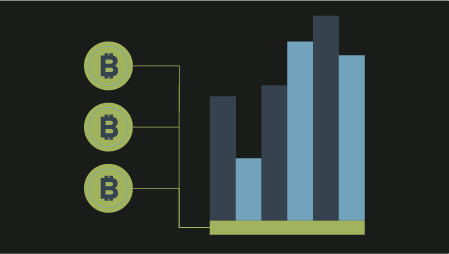The financial sector is changing. Brick and mortar institutions are giving way to new Fintech solutions. These are reshaping the very way we do finance. According to Goldman Sachs, around $ 4.7 trillion of traditional financial sphere revenue could be disrupted by the Fintech industry. Compared to their estimates that the overall size of the financial markets is set to hit $ 26.5 trillion in 2022. This makes it a force to be reckoned with. But what is Fintech exactly, and how will it affect and reshape the ways we do finance?
What is Fintech?
First, let’s look at what Fintech is precisely. Fintech or financial technology is a broad name for a range of innovative financial services. Generally, we can divide these into the following categories:
- Payments systems that allow users to send and receive payments (PayPal, Apple Pay, etc.)
- Digital banking solutions that help business and personal clients to manage their money (Ally, American Express, Barclays, etc.)
- Insurance, aka. InsurTech covers everything from car insurance to home insurance and everything in between to deliver a new way to insure yourself and your property
- Lending solutions upgrade the traditional way lending was done by offering smart solutions to lenders and clients (HES Fintech)
- Investment software and Robo-advisors help their clients invest their money in everything from stocks and shares to cryptocurrency. Robo-advisors advise clients using the latest in AI technology (Robinhood, Betterment, etc.)
- Blockchain and Cryptocurrency provide an alternative to fiat currencies and a new way to do finance (Bitcoin, Ethereum, Litecoin, etc.)
- Crowdfunding aids fundraisers in gathering donations for a charitable or personal cause (Patreon, Kickstarter, GoFundMe, etc.)
While Fintech might sound modern, its origins date back to the 1950s with the invention of the credit card (Diners Card). From there, it has gone through many changes — from ATMs to electronic trading to the introduction of PayPal and online payment systems.
The very latest solutions often focus on the blockchain or artificial intelligence (AI) technology. These are often designed to offer an additional layer of security, add speed or even completely revolutionize the way financial services are done.
How is Fintech Changing the Finance Industry?
According to a study by PwC, 82% of financial service providers expect to adapt Fintech solutions in the next three to five years. But what exactly do they plan to achieve with these developments? Let’s take a look at some of how Fintech is fundamentally changing the financial industry landscape today.
Banking
With a reduction in local bank branches and the growth of online services, Fintech is more prevalent than ever. But its reaches go much further than simple banking apps. So, how is Fintech changing banking?
Modern banking Fintech solutions are a sophisticated approach that covers everything from onboarding to Know Your Customer (KYC) and Anti-Money Laundering (AML) to providing a variety of services, including chatbots, loan calculators, and more. Fintech is upgrading the way banking is done.
These digital solutions make it simpler for clients to access services without ever entering brick and mortar offices, such as making online transactions, opening accounts, and paying bills. Allowing businesses to optimize staffing, reduce costs on the number of physical branches, and concentrate efforts on delivering efficient customer services.
Financial Services
Encompassing a variety of financial services, such as lending, insurance, trading, and more, Fintech is a growing presence in the financial services industry. 88% of market participants are concerned that if they don’t adapt to market changes, they may lose out to innovators.
The world’s largest financial giants share this belief. Take a look at recent acquisitions by Mastercard of Finicity and Nets for $ 1 billion and $ 3.19 billion, respectively, or Visa’s acquisition of Fintech star Plaid for $ 5.3 billion. These suggest that even those at the top are investing heavily in Fintech services to boost their current stack.
Across the broader financial services industry, solutions are being rolled out to deliver personalization, automation, reduce errors, and increase overall efficiency—for example, document automation and reading, digital ID checks, and more.
How is HES Fintech Changing the Lending Industry?
HES Fintech is a world leader in the provision of smart lending solutions for financial institutions. The company helps businesses to upgrade their technology stack to automate processes, drive efficiency, and increase revenue. Here’s how.
Automation of essential processes
When staff is concentrating on paperwork, they’re not focusing on client satisfaction. 49% of customers said that just a single negative experience would make them reconsider doing business with that brand again. By automating document reading and process, your team can concentrate their efforts on customer satisfaction. This conversely has a 77% chance that your customer will stay, reducing costs to your business. Estimates put onboarding new clients at 5-25 times more costly than retaining current ones.
Personalization of services
In the modern world, personalization is everywhere. From the algorithms behind Netflix to the ads you see on Google. There is no reason that when your customers approach your company, they shouldn’t have the same personalized approach. By adopting the most modern solutions, not only will you be able to deliver a more human approach, delighting your clients, you’ll be able to reduce risk to your business by treating them as an individual.
Security across the board
From GDPR to KYC and AML, and other regulations, the requirement for robust security features in any Fintech solution is priority number one. As a financial services provider, you are required to deliver security to your clients’ data and money. Going beyond the minimum sets you up as a reliable provider who your customers can trust. Additionally, security is a primary feature you will require to meet national and international requirements to protect your business from fraud and identity theft, which could cost you in money and reputation.
Risk assessment
One of the first questions your company has to answer when working with a client is related to risk. HES FinTech delivers tailored risk assessment software to help you effectively onboard and work with clients. This is done by automating document processes, comparisons of product types, and integrated debt collection software. It allows you to manage your clients as individuals, not as numbers, more effectively.
Integrations for any platform
There’s no point in investing in technology, no matter how great it sounds on paper if it doesn’t work for you or your clients. From credit bureaus to payment and notifications providers, BI solutions, KYC, AML, and more, HES Fintech focuses on delivering smart technologies that meet your business needs. These can be an entire platform to system upgrades, depending on what your business needs to get to optimum capacity.
A threat to the Finance Industry or Latest Evolution?
While we are seeing a reduction in the traditional brick and mortar intuitions that once serviced our financial needs, Fintech is not a monster to be feared. The opposite is true. The latest Fintech solutions are an evolution.
In particular, loan and lending software solutions, such as those offered by HES Fintech, deliver businesses the potential to develop their capacities and market access and engage their clients like never before. To recap, here’s what they can do:
- Personalize solutions and services. HES Fintech has a 3-4-month delivery time (depending on the product), taking your business from zero to ready.
- Deliver greater efficiency for your business. Automate document processes and complete compliance tasks with ease.
- Increase customer satisfaction. Spend more time focusing on your clients, seeing them as individuals, not a mountain of paperwork.
- Make your data more accurate. Digitized technologies for working with data reduce the risk of error.
- Create complex solutions for your needs. Out-of-the-box solutions are fast but don’t suit every business. A tailored solution for your company means that each stage of the loan process becomes streamlined and effective.




